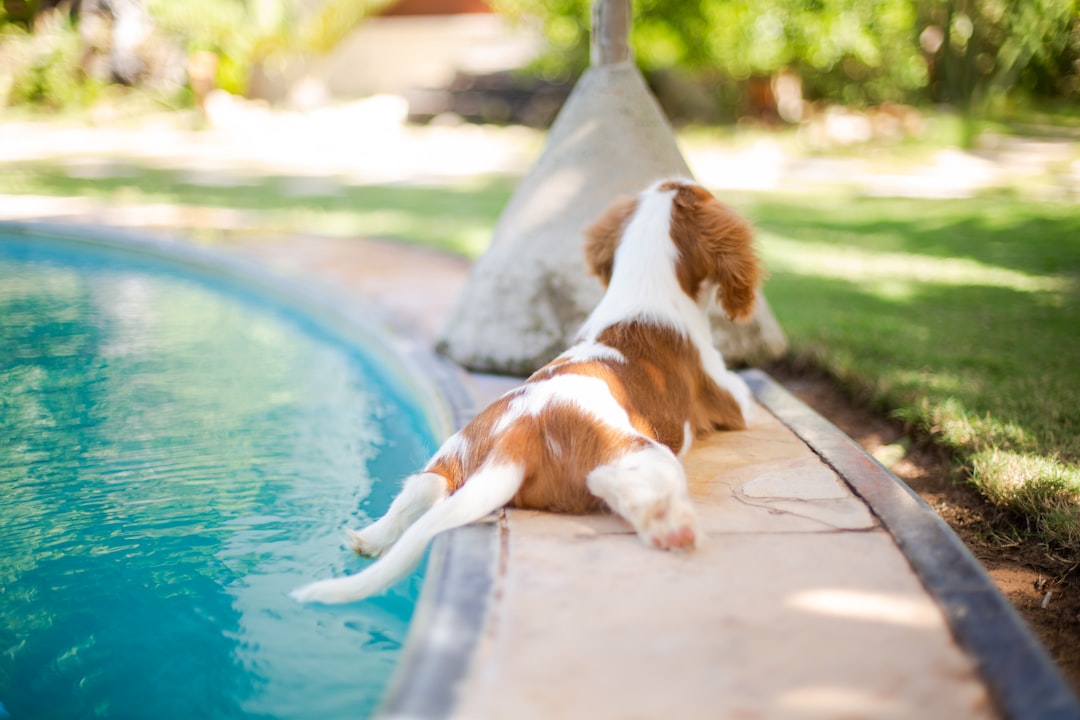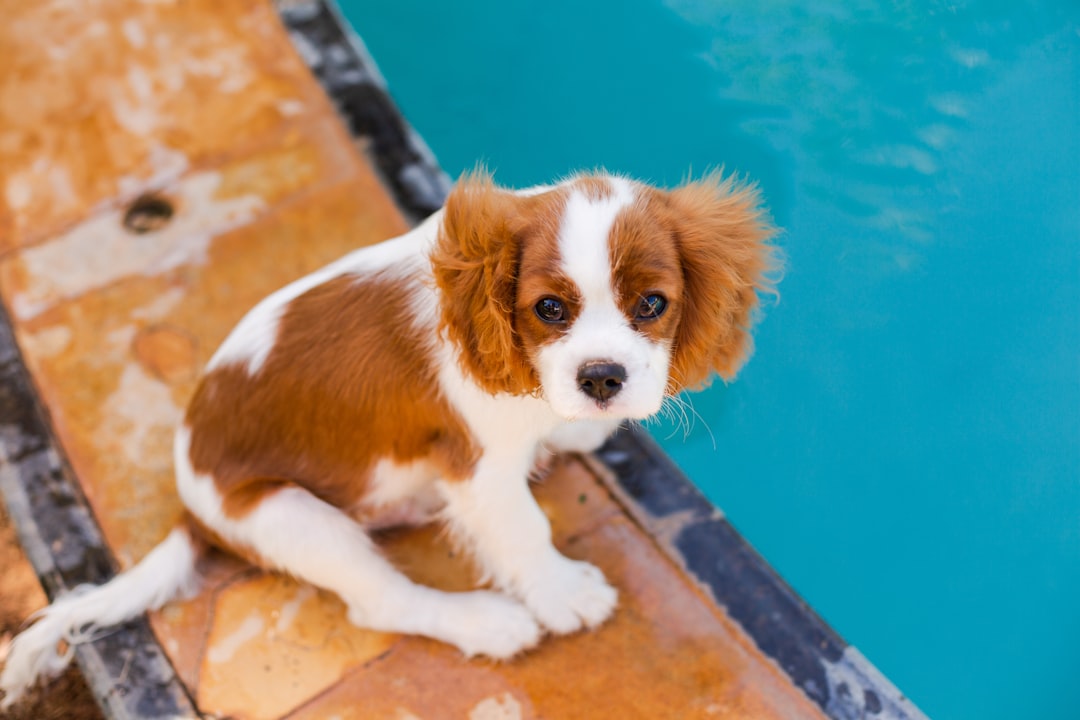Caring for a Cavalier King Charles Spaniel: A Complete Guide to Health, Grooming, and Family-Friendly Care
This article provides an overview of caring for a Cavalier King Charles Spaniel, including their diet, exercise, grooming, and health considerations.
Overview of the Cavalier King Charles Spaniel Breed
The Cavalier King Charles Spaniel is a beloved toy breed known for its affectionate, active, and family-friendly nature. This breed is characterized by its silky, wavy coat and distinctive feathered features, standing at a height of 12 to 13 inches and weighing around 13 to 18 pounds. With its playful, affectionate, and patient temperament, the Cavalier King Charles Spaniel has a long history associated with nobles and royals in England [1]. These dogs are well-suited for various living situations, including apartments, making them a popular choice for families and individuals alike [1].
The breed’s adaptability extends beyond living situations, as they are also known for their versatility in interacting with other pets and children. Their amiable nature and gentle temperament make them an ideal choice for households with children, as they thrive on human interaction and are well-suited for companionship. For example, the Cavalier King Charles Spaniel’s playful and friendly disposition allows them to form strong bonds with children, providing a loyal and loving presence within the family.
Moreover, their historical significance as companions to nobles and royals adds to their allure, making them a sought-after breed for those interested in a dog with an aristocratic heritage. This heritage, coupled with their adaptability and loving nature, contributes to the breed’s enduring popularity and appeal to a wide range of potential dog owners.
Physical Needs of a Cavalier King Charles Spaniel
Cavalier King Charles Spaniels thrive on a diet that is high in quality and appropriately portion-controlled. This means feeding them a balanced diet that includes lean proteins, healthy fats, and essential vitamins and minerals to support their overall health and prevent obesity. For example, a diet consisting of lean meats, whole grains, and fresh fruits and vegetables can provide the necessary nutrients to keep these dogs in optimal condition. It’s important to consult with a veterinarian to determine the specific dietary needs of a Cavalier King Charles Spaniel based on factors such as age, activity level, and any existing health conditions. By tailoring their diet to their individual needs, owners can help prevent obesity and promote their pet’s well-being.
In addition to a proper diet, these affectionate dogs benefit from daily exercise to maintain their physical health and mental well-being. Engaging these dogs in 30 minutes of exercise each day is essential, whether it involves brisk walks, interactive play sessions, or activities that stimulate their natural instincts. For example, playing fetch, going for a jog, or participating in agility training can help them stay fit and mentally engaged. Regular exercise also helps prevent behavioral issues that may arise from boredom or pent-up energy. Furthermore, exercise provides an opportunity for the breed to socialize with other dogs and people, contributing to their overall well-being and happiness.
Moreover, regular grooming is a fundamental aspect of caring for a Cavalier King Charles Spaniel. Their silky coat and distinctive feathered features require weekly brushing to prevent matting and tangling. Furthermore, periodic bathing and professional grooming sessions help maintain their coat’s health and appearance. It’s also crucial to pay attention to their ears, nails, and dental hygiene, as these areas are essential for the breed’s overall well-being. By keeping up with grooming needs, owners can ensure that their Cavalier King Charles Spaniel remains comfortable, healthy, and looking its best. By addressing their dietary, exercise, and grooming needs, owners can ensure that these dogs live happy, healthy lives.
 Health Considerations for Cavalier King Charles Spaniels
Health Considerations for Cavalier King Charles Spaniels
The Cavalier King Charles Spaniel breed is known to be susceptible to various inheritable health conditions, which can affect their quality of life if not addressed. One common health issue in this breed is heart disease, particularly mitral valve disease, which can lead to heart failure if left untreated. This emphasizes the importance of obtaining puppies from reputable breeders who conduct thorough health screenings to minimize the risk of inheriting such conditions. By being proactive in selecting a Cavalier King Charles Spaniel from a responsible breeder, potential owners can significantly reduce the likelihood of their pet developing serious health problems.
In addition to heart disease, syringomyelia is another health concern in Cavalier King Charles Spaniels. This condition is characterized by fluid-filled cavities in the spinal cord, which can cause discomfort and pain for the affected dogs. By being informed about these health risks, prospective owners can take the necessary precautions and seek guidance from veterinarians to ensure the well-being of their pets. Furthermore, joint problems and eye issues are prevalent in this breed, underscoring the need for regular veterinary check-ups and attentive care to detect and manage these conditions early on, if they arise. It’s crucial for Cavalier King Charles Spaniel owners to remain vigilant about their pets’ health and seek professional guidance to address any potential health issues promptly [1][2].
Grooming and Maintenance for Cavalier King Charles Spaniels
Cavalier King Charles Spaniels have a beautiful silky coat that requires regular maintenance to keep it in optimal condition. In addition to weekly brushing, these dogs need regular bathing to keep their coats clean and healthy. It’s recommended to use grooming products like Silky Show Shampoo and Aloe Hydrating Spray to ensure their coats remain in top condition. Moreover, ear cleaning, nail trimming, and dental hygiene are crucial aspects of grooming to ensure the overall health of the breed [3][4].
For example, regular ear cleaning is essential for Cavalier King Charles Spaniels as their long, floppy ears can trap moisture and debris, making them more susceptible to ear infections. By gently cleaning their ears and keeping them dry, owners can prevent potential health issues and discomfort for their dogs. Similarly, proper dental hygiene, including regular teeth brushing, can help prevent dental problems and maintain the overall well-being of the breed.
Nail trimming is another important grooming practice for Cavalier King Charles Spaniels. Overgrown nails can cause discomfort and even lead to mobility issues for the dogs. By keeping their nails trimmed to an appropriate length, owners can ensure the comfort and health of their pets. Therefore, regular grooming and maintenance are essential for preserving the health, appearance, and well-being of Cavalier King Charles Spaniels [3].
Choosing a Cavalier King Charles Spaniel for Your Family
When choosing a Cavalier King Charles Spaniel for your family, it’s essential to consider their gentle, affectionate, and playful nature. These dogs are known for their adaptability to apartment living, making them suitable for various living situations. For instance, a Cavalier King Charles Spaniel can thrive in an apartment environment as long as they receive regular exercise and companionship. They enjoy being around people and are generally sociable, which makes them well-suited for family life [1].
In addition to their adaptability, it’s crucial to emphasize the significance of socialization, positive training, and attentive care. Cavaliers are known for their loyalty and need for human companionship, and they thrive in environments where they receive plenty of love, attention, and mental stimulation. Families considering this breed should be prepared to invest time and effort into training, socializing, and engaging with their Cavalier King Charles Spaniel to ensure their well-being and happiness. Whether it’s through interactive play, regular walks, or positive reinforcement training, the involvement of the family is crucial in providing a nurturing and stimulating environment for this beloved breed [2].
 Conclusion
Conclusion
In summary, the Cavalier King Charles Spaniel is a beloved breed known for its affectionate nature, historical significance, and adaptability to various living situations, making it an ideal choice for many families. It is crucial to provide proper care, including a well-balanced diet, regular exercise, grooming, and attention to potential health issues, to ensure the overall well-being of these charming dogs [1][2][3].
These dogs are known for their gentle and playful temperament, making them well-suited for families with children. For example, their patient and sociable nature allows them to thrive in a family environment, where they can form strong bonds with both adults and kids. Additionally, their adaptability to apartment living makes them an attractive choice for urban dwellers, as they can comfortably adjust to smaller living spaces while still getting the exercise they need.
Moreover, the historical association of the Cavalier King Charles Spaniel with nobles and royals in England adds to their allure, making them a breed with a rich and distinguished background. Their popularity and positive traits have made them a sought-after choice for many dog lovers, highlighting the importance of responsible ownership and proper care to ensure their well-being and happiness.
Frequently Asked Questions (FAQs)
- What is the recommended diet for a Cavalier King Charles Spaniel? A high-quality, portion-controlled diet is recommended to prevent obesity in Cavalier King Charles Spaniels.
- What are the exercise requirements for a Cavalier King Charles Spaniel? Cavalier King Charles Spaniels require 30 minutes of daily exercise to keep them healthy and engaged.
- How often should a Cavalier King Charles Spaniel be groomed? These dogs need regular grooming, including weekly coat brushing and regular bathing, to maintain their silky coat and distinctive feathered features.
- What are the common health issues in Cavalier King Charles Spaniels? Cavalier King Charles Spaniels are susceptible to several inheritable health conditions, including heart disease, syringomyelia, joint problems, and eye issues.
- Are Cavalier King Charles Spaniels suitable for apartment living? Yes, Cavalier King Charles Spaniels are well-suited for various living situations, including apartments.
- How much daily exercise does a Cavalier King Charles Spaniel need? They require 30 minutes of daily exercise to keep them healthy and engaged.
- What are the grooming needs for a Cavalier King Charles Spaniel’s coat? This breed requires weekly coat brushing, regular bathing, ear cleaning, nail trimming, and dental hygiene to maintain their coat and overall health.
- How can I prevent obesity in a Cavalier King Charles Spaniel through diet? Feeding them a high-quality, portion-controlled diet is essential to prevent obesity.
- What are the key considerations when choosing a Cavalier King Charles Spaniel for a family with children? Considering their gentle, affectionate, and playful temperament, socialization, positive training, and attentive care are key when choosing a Cavalier King Charles Spaniel as a family pet.
- What are the potential health risks associated with Cavalier King Charles Spaniels? Cavaliers are susceptible to several inheritable health conditions, including heart disease, syringomyelia, joint problems, and eye issues.

